The nuclear submarine issue is simply a blind. AUKUS is just a distraction. The AUSMIN 2021 Joint Statement reveals the extent to which Australia is now entwined in US military war preparations.
Read more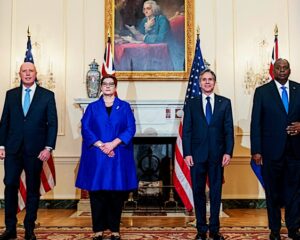

The nuclear submarine issue is simply a blind. AUKUS is just a distraction. The AUSMIN 2021 Joint Statement reveals the extent to which Australia is now entwined in US military war preparations.
Read more
Leaving aside the potentially adverse strategic implications of Australia’s nuclear-powered submarine decision, for those who think a submarine capability is important, it is simply bad defence policy. Australian governments are now certain to be bedevilled by submarines for generations.
Read more
The UK’s much anticipated new security, defence and foreign policy paper, Global Britain in a Competitive Age, sets out the government’s overarching national security and international policy objectives. Reviews have been mixed.
Read more
Chatham House’s Bill Hayton looks at the UK’s ’tilt’ to the Indo-Pacific – involving trade, military presence and diplomatic efforts, concluding that the overall effect is likely to embed the UK in the Indo-Pacific as a valuable partner for those countries which value a free and open international order.
Read more
Reuters reports that the final landmines on the Falkland Islands in the South Atlantic have been cleared, Britain said on Tuesday [10 November 2020], nearly 40 years after they were laid by Argentine forces when they seized the British territory.
Read more
According to a report released in January 2020 by the Bennett Institute (Cambridge), many large democracies are now at their highest-ever recorded level for democratic dissatisfaction, including the UK, US, Brazil, Mexico and Australia. Many large democracies are now at their highest-ever recorded level for democratic dissatisfaction, including the UK, US, Brazil, Mexico and Australia A report released in January 2020 by the new Centre for the Future of Democracy at the Bennett Institute, University
Read more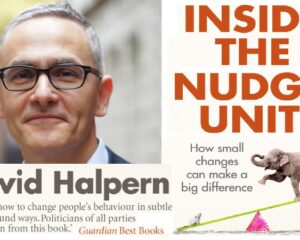
How appropriate is behavioural economics as a basis for making public policy? Should it be called ‘science’? What does the evidence tell us?
Read more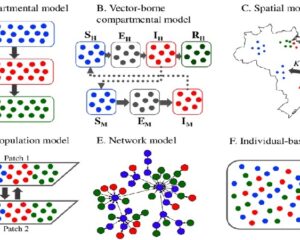
David McCoy makes some important observations on the relationship between the scientific and non-scientific elements of COVID-19 decision-making; the inherent limitations of modelling – particularly when dealing with a novel virus about little is known.
Read more
In an article in The Guardian, David Runciman shows how the pandemic has removed “one layer of political life to reveal something more raw underneath”. He writes, “As Hobbes knew, to exercise political rule is to have the power of life and death over citizens. The only reason we would possibly give anyone that power is because we believe it is the price we pay for our collective safety. But it also means that we
Read more
The UK’s biological security strategy, published in 2018 to address the threat of pandemics, was not properly implemented, according to a former government chief scientific adviser. Professor Sir Ian Boyd, who advised the environment department for seven years until last August and was involved in writing the strategy, said a lack of resources was to blame. Other experts said there was a gap between pandemic planning and action, and that the strategy had stalled.
Read more
A moral dilemma is a situation in which a person is faced with two mutually exclusive choices and urgent reasons to choose each of them. Choosing between saving human lives and saving business ventures poses no such moral dilemma; lives and money cannot be equated. And yet this kind of zero-sum thinking has never been an impediment to individuals focused on political or financial aspirations no matter the human cost.
Read more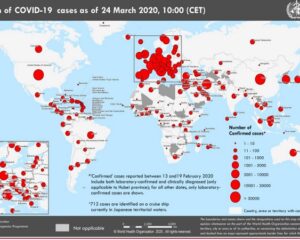
Martin Wolf focuses on the choices decision-makers face, writing that COVID-19 is not just an economic challenge, it is an ethical one. Discussing the debate between suppression and mitigation strategies, he asks ‘Could a health calamity that is unacceptable in China be acceptable in the UK or US?’
Read more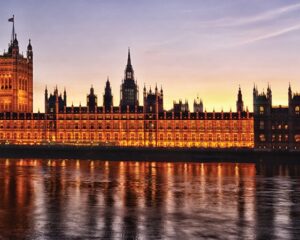
Jonathan Freedland reflects on the speed at the which the national life of the United Kingdom has been completely transformed by coronavirus – and on the emerging questions and divisions. Divisions that came down to the government’s preference for the voluntary over the compulsory; a social libertarianism approach that may prove to have been just too cavalier.
Read more
Writing in The Guardian, George Monbiot sees some common threads in the approaches to COVID-19 of the UK, US and Australian governments. The worst possible people are in charge at the worst possible time. In the UK, the US and Australia, the politics of the governing parties have been built on the dismissal and denial of risk. Just as these politics have delayed the necessary responses to climate breakdown, ecological collapse, air and water pollution,
Read more
Seeping faintly through the pronouncements and policies of some government responses to the coronavirus pandemic are the vapours of older belief systems; a whiff of utilitarianism, the scent of social Darwinism, and the fetid reek of eugenics. Examination of the UK government’s ‘herd immunity’ pandemic response suggests that it is not too farfetched to connect contemporary politics with these ostensibly outdated ideas.
Read more